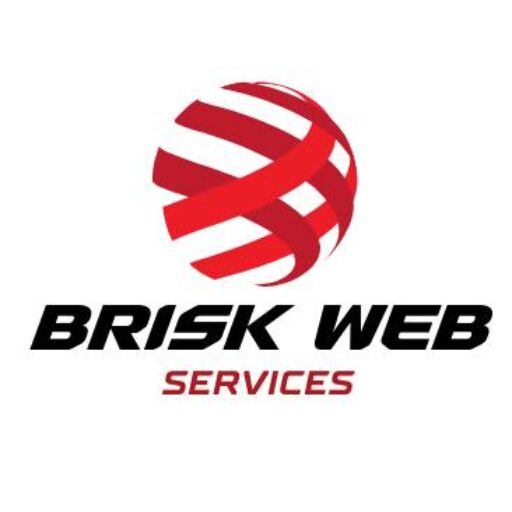
In today’s highly competitive market, small businesses need robust digital marketing strategies to stand out. With the right approach, even the smallest of businesses can compete with larger brands and attract their target audience. This article outlines the most effective digital marketing strategies for small businesses that will help you succeed in 2024 and beyond.
Table of Contents
Why Digital Marketing Matters for Small Businesses
Small businesses have limited resources, and digital marketing offers an affordable way to reach a broad audience. A well-executed digital strategy can help you:
- Increase brand awareness
- Attract new customers
- Drive website traffic
- Boost sales and revenue
By adopting the right digital marketing techniques, small businesses can compete with larger players while staying within budget.
1. Develop a Strong SEO Strategy

Search engine optimization (SEO) is one of the most powerful digital marketing tools for small businesses. SEO allows you to rank higher in search engine results, making your business more visible to potential customers.
Key SEO Tips for Small Businesses
- Optimize for local search: Make sure your business appears in local search results by optimizing for local keywords (e.g., “coffee shop in Austin”).
- Use long-tail keywords: Focus on specific keyword phrases like “affordable web design for small businesses” rather than broad terms.
- Claim your Google My Business profile: This boosts your chances of appearing in local search results and on Google Maps.
- Improve on-page SEO: Use your main keyword in the title, meta description, headers, and throughout the content.
By optimizing for search engines, your small business can gain organic traffic without paying for ads.
2. Leverage Social Media Marketing

Social media platforms like Facebook, Instagram, and LinkedIn offer small businesses a way to engage with customers directly, build brand loyalty, and drive website traffic.
Actionable Social Media Tips
- Create a content calendar: Plan posts that highlight your products, services, and company culture. Post regularly to maintain visibility.
- Use Facebook Ads: Even with a small budget, Facebook Ads can target specific audiences based on demographics, interests, and location.
- Leverage Instagram Stories and Reels: Engage users through short, entertaining videos and behind-the-scenes content.
- Focus on community engagement: Respond to comments, host giveaways, and ask questions to encourage interaction.
Being consistent and authentic on social media can help build a loyal customer base over time.
3. Invest in Pay-Per-Click (PPC) Advertising

Pay-per-click (PPC) advertising is a cost-effective way for small businesses to reach their audience quickly. Unlike SEO, which takes time to show results, PPC ads can generate immediate traffic.
PPC Strategies for Small Businesses
- Start with Google Ads: Target customers who are actively searching for products or services similar to yours.
- Set a daily budget: Avoid overspending by setting a strict daily ad budget that aligns with your overall marketing spend.
- Utilize retargeting ads: Show ads to users who have previously visited your website but didn’t convert.
PPC can drive targeted traffic to your website, but it’s essential to manage your budget effectively.
4. Build an Email Marketing Campaign
Email marketing remains one of the most effective digital marketing strategies for small businesses. It’s personal, customizable, and offers a high return on investment (ROI).
Best Practices for Email Marketing
- Segment your email list: Group your audience based on behaviors or preferences to send personalized emails.
- Use compelling subject lines: The subject line determines whether your email gets opened. Make it catchy and relevant.
- Offer value: Provide exclusive discounts, educational content, or early access to new products.
- Automate your campaigns: Use automation tools to send welcome emails, abandoned cart reminders, and follow-ups based on user actions.
Email marketing keeps your audience engaged and drives repeat purchases.
5. Create High-Quality Content
Content marketing is essential for building trust and authority in your industry. When you create high-quality, valuable content, you provide solutions to your audience’s problems and position your business as an expert.
Content Ideas for Small Businesses
- Blog posts: Share educational content related to your products or industry.
- Infographics: Create easy-to-read graphics that simplify complex information.
- Videos: Record product demos, behind-the-scenes clips, or customer testimonials.
- E-books and guides: Offer free downloadable resources in exchange for email sign-ups.
By consistently producing valuable content, you’ll drive more traffic and generate leads for your small business.
6. Utilize Influencer Marketing
Influencer marketing is no longer reserved for big brands. Micro-influencers (those with smaller, but highly engaged audiences) can provide tremendous value for small businesses. They have loyal followers who trust their opinions.
How to Implement Influencer Marketing
- Find relevant influencers: Look for influencers within your niche who align with your brand values.
- Offer free products or services: Many micro-influencers are willing to promote small businesses in exchange for free products or services.
- Track performance: Monitor the engagement and reach of influencer campaigns to measure ROI.
Partnering with the right influencers can help you expand your reach and build credibility with your target audience.
7. Focus on Online Reviews and Reputation Management
Online reviews are critical for small businesses. Consumers trust reviews, and positive feedback can significantly influence purchasing decisions.
How to Encourage Positive Reviews
- Ask for reviews: Send follow-up emails to customers requesting reviews on Google, Yelp, or Facebook.
- Respond to reviews: Whether positive or negative, engage with customers by responding to their feedback.
- Showcase reviews on your website: Display customer reviews on your homepage or product pages to build social proof.
A strong online reputation will build trust and encourage more customers to choose your business.
8. Use Analytics to Refine Your Strategies
Tracking the performance of your digital marketing efforts is crucial. Use analytics tools to measure what’s working and what’s not, and adjust your strategies accordingly.
Analytics Tools for Small Businesses
- Google Analytics: Track website traffic, user behavior, and conversion rates.
- Social media insights: Platforms like Facebook and Instagram offer built-in analytics to measure engagement.
- Email marketing tools: Use email platforms like Mailchimp or Constant Contact to monitor open rates and click-through rates.
Consistently refining your strategies based on data will help you maximize your marketing efforts.
Unique FAQs on Digital Marketing for Small Businesses
Q1: How can I do digital marketing with a limited budget?
Focus on cost-effective strategies like SEO, social media, and email marketing. Create high-quality content that drives organic traffic and engage with your audience on social platforms.
Q2: Is paid advertising necessary for small businesses?
Paid advertising isn’t necessary, but it can boost visibility quickly. A small, targeted PPC campaign can drive traffic while you work on building organic reach.
Q3: How often should I update my website content for SEO?
Regularly update your content—ideally monthly. Google rewards fresh, relevant content, so keeping your website current with blog posts or new product pages is beneficial.
Q4: What’s the best way to track the success of my digital marketing efforts?
Use analytics tools like Google Analytics, and track key performance indicators (KPIs) like traffic, conversions, and customer engagement to evaluate your digital marketing performance.
By implementing these digital marketing strategies for small businesses, you can effectively grow your online presence, attract new customers, and drive long-term success.
